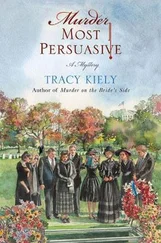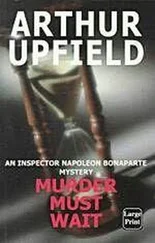“His wife died two years after they were married, leaving him with a baby ten months old.”
“Did he bring it up himself?”
“Entirely. I can see him now bathing the little chap, changing his diapers, and warming the milk for his bottle.”
“That doesn’t explain why he quarrels with people.”
Admittedly. But it was difficult to put it into words.
“Soured?”
“Not exactly. The thing is—”
“What?”
“That he’s never lived like other people. Perhaps Olivier isn’t really very intelligent. Perhaps, from reading so much, he knows too much about some things and too little about others.”
“Do you think him capable of killing the old woman?”
The Inspector puffed at his pipe. They could hear the people in the room above walking about. The two other men fiddled with their papers, pretending not to listen.
“She was his mother-in-law,” sighed Lecœur. “You’d have found it out anyhow, sooner or later.”
“They didn’t hit it off?”
“She hated him.”
“Why?”
“She considered him responsible for her daughter’s death. It seems she could have been saved if the operation had been done in time. It wasn’t my brother’s fault. The people at the hospital refused to take her in. Some silly question of her papers not being in order. All the same, Madame Fayet held to it that Olivier was to blame.”
“Did they see each other?”
“Not unless they passed each other in the street, and then they never spoke.”
“Did the boy know?”
“That she was his grandmother? I don’t think so.”
“You think his father never told him?”
* * *
Never for more than a second or two did Lecœur’s eyes leave the plan of Paris, but, besides being Christmas, it was the quiet time of the day, and the little lamps lit up rarely. Two or three street accidents, a lady’s handbag snatched in the Métro, a suitcase pinched at the Gare de l’Est.
No sign of the boy. It was surprising considering how few people were about. In the poor quarters a few little children played on the pavements with their new toys, but on the whole the day was lived indoors. Nearly all the shops were shuttered and the cafes and the little bars were almost empty.
For a moment, the town came to life a bit when the church bells started pealing and families in their Sunday best hurried to High Mass. But soon the streets were quiet again, though haunted here and there by the vague rumble of an organ or a sudden gust of singing.
The thought of churches gave Lecœur an idea. Might not the boy have tucked himself away in one of them? Would the police think of looking there? He spoke to Inspector Saillard about it and then got through to Justin for the third time.
“The churches. Ask them to have a look at the congregations. They’ll be doing the stations, of course—that’s most important.”
He took off his glasses for a moment, showing eyelids that were red, probably from lack of sleep.
“Hallo! Yes. The Inspector’s here. Hold on.”
He held the receiver to Saillard. “It’s Janvier.”
The bitter wind was still driving through the streets. The light was harsh and bleak, though here and there among the closely packed clouds was a yellowy streak which could be taken as a faint promise of sunshine to come.
When the Inspector put down the receiver, he muttered, “Dr. Paul says the crime was committed between five and half past six this morning. The old woman wasn’t killed by the first blow. Apparently she was in bed when she heard a noise and got up and faced the intruder. Indeed, it looks as though she tried to defend herself with the only weapon that came to hand—a shoe.”
“Have they found the weapon she was killed with?”
“No. It might have been a hammer. More likely a bit of lead piping or something of that sort.”
“Have they found her money?”
“Only her purse, with some small change in it and her identity card. Tell me, Lecœur, did you know she was a money-lender?”
“Yes. I knew.”
“And didn’t you tell me your brother’s been out of work for three months?”
“He has.”
“The concierge didn’t know.”
“Neither did the boy. It was for his sake he kept it dark.”
The Inspector crossed and uncrossed his legs. He was uncomfortable. He glanced at the other two men who couldn’t help hearing everything, then turned with a puzzled look to stare at Lecœur.
“Do you realize what all this is pointing to?”
“I do.”
“You’ve thought of it yourself?”
“No.”
“Because he’s your brother?”
“No.”
“How long is it that this killer’s been at work? Nine weeks, isn’t it?”
Without haste, Lecœur studied the columns of his notebook.
“Yes. Just over nine weeks. The first was on the twentieth of October, in the Epinettes district.”
“You say your brother didn’t tell his son he was out of a job. Do you mean to say he went on leaving home in the evening just as though he was going to work?”
“Yes. He couldn’t face the idea of telling him. You see—it’s difficult to explain. He was completely wrapped up in the boy. He was all he had to live for. He cooked and scrubbed for him, tucked him up in bed before going off, and woke him up in the morning.”
“That doesn’t explain why he couldn’t tell him.”
“He couldn’t bear the thought of appearing to the kid as a failure, a man nobody wanted and who had doors slammed in his face.”
“But what did he do with himself all night?”
“Odd jobs. When he could get them. For a fortnight, he was employed as night watchman in a factory in Billancourt. but that was only while the regular man was ill. Often he got a few hours’ work washing down cars in one of the big garages. When that failed, he’d sometimes lend a hand at the market unloading vegetables. When he had one of his bouts—”
“Bouts of what?”
“Asthma. He had them from time to time. Then he’d lie down in a station waiting room. Once he spent a whole night here, chatting with me.”
“Suppose the boy woke up early this morning and saw his father at Madame Fayet’s?”
“There was frost on the windows.”
“There wouldn’t be if the window was open. Lots of people sleep with their windows open even in the coldest weather.”
“It wasn’t the case with my brother. He was always a chilly person. And he was much too poor to waste warmth.”
“As far as his window was concerned, the boy had only to scratch away the frost with his fingernail. When I was a boy—
“Yes. So did I. The thing is to find out whether the old woman’s window was open.”
“It was, and the light was switched on.”
“I wonder where Francois can have got to.”
“The boy?”
It was surprising and a little disconcerting the way he kept all the time reverting to him. The situation was certainly embarrassing, and somehow made all the more so by the calm way in which Andre Lecœur gave the Inspector the most damaging details about his brother.
“When he came in this morning,” began Saillard again, “he was carrying a number of parcels. You realize—”
“It’s Christmas.”
“Yes. But he’d have needed quite a bit of money to buy a chicken, a cake, and that new radio. Has he borrowed any from you lately?”
“Not for a month. I haven’t seen him for a month. I wish I had. I’d have told him that I was getting a radio for Francois myself. I’ve got it here. Downstairs, that is, in the cloakroom. I was going to take it straight round as soon as I was relieved.”
“Would Madame Fayet have consented to lend him money?”
“It’s unlikely. She was a queer lot. She must have had quite enough money to live on, yet she still went out to work, charring from morning to evening. Often she lent money to the people she worked for. At exorbitant interest, of course. All the neighborhood knew about it, and people always came to her when they needed something to tide them over till the end of the month.”
Читать дальше












